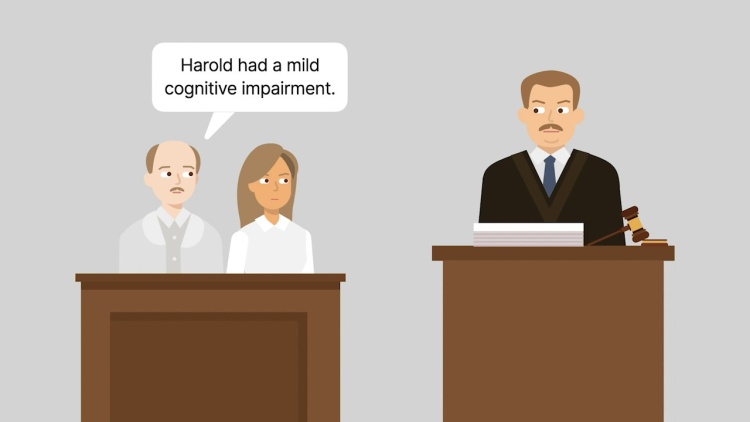Edmunds v. Edwards
Supreme Court of Nebraska
287 N.W.2d 420 (1980)
- Written by Craig Conway, LLM
Facts
Renne Edmunds (plaintiff), guardian of the estate of Harold Edwards, filed a petition against Harold’s wife, Inez Edwards (defendant), to annul their two-year marriage on the ground that Harold lacked the mental capacity to knowingly enter into a marriage contract. Inez denied the claim. Harold had been institutionalized for an intellectual disability in a state-run home for approximately 30 years. During that time, Harold met Inez, and the Edwardses formed a close relationship. After their release from the facility, Harold and Inez lived together with an acquaintance, and Harold secured employment as a food-service worker. Prior to their marriage, Harold and Inez were counseled by a pastor of a church. At a hearing, a psychologist testified that Harold was not competent to enter into a valid marriage, while a psychiatrist who knew Harold well testified that Harold had the mental capacity to fully understand the responsibilities associated with marriage. The trial court found that although Harold lacked a degree of mental capacity, his lack of capacity was not of such a nature as to render Harold incompetent to enter into his marriage with Inez. The court upheld the validity of the marriage and concluded that, at the time of the marriage, Harold had sufficient capacity to understand the nature of the marriage contract and the duties and responsibilities associated with that contract. Edmunds appealed.
Rule of Law
Issue
Holding and Reasoning (Brodkey, J.)
What to do next…
Here's why 907,000 law students have relied on our case briefs:
- Written by law professors and practitioners, not other law students. 47,100 briefs, keyed to 996 casebooks. Top-notch customer support.
- The right amount of information, includes the facts, issues, rule of law, holding and reasoning, and any concurrences and dissents.
- Access in your classes, works on your mobile and tablet. Massive library of related video lessons and high quality multiple-choice questions.
- Easy to use, uniform format for every case brief. Written in plain English, not in legalese. Our briefs summarize and simplify; they don’t just repeat the court’s language.





